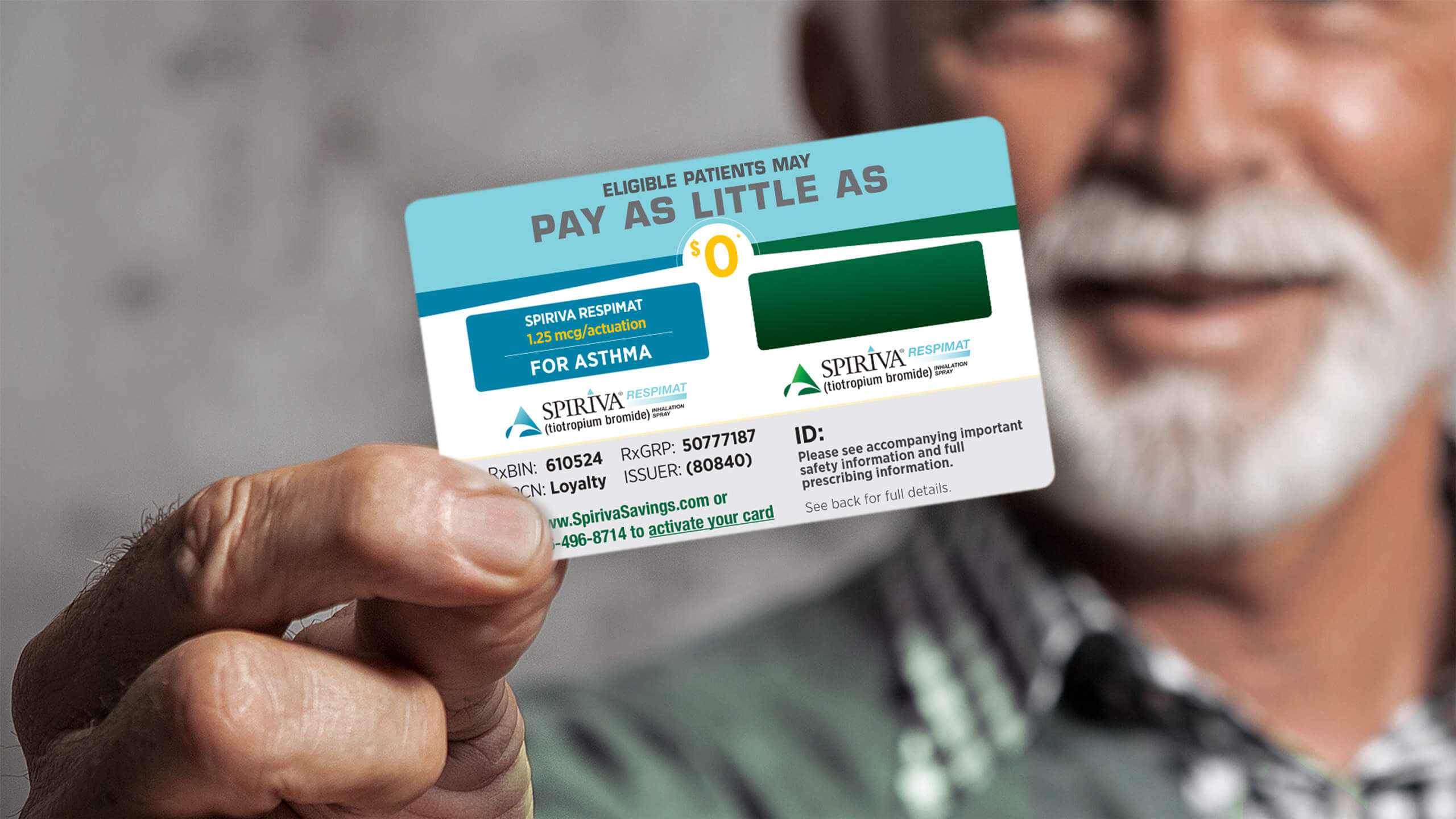Talk to your doctor about SPIRIVA RESPIMAT for asthma
Asthma can vary over time. Because of this, your asthma treatment may need to be adjusted every once in a while. That’s why it’s important to have regular check-ins with your doctor.

During these check-ins, your doctor:
- Evaluates your symptoms
- May make adjustments to your treatment
- Talks about ways to avoid asthma triggers

Before your appointment
Track your symptoms for a few weeks leading up to your appointment. That will help your doctor figure out if you need to make changes to your treatment plan, and it can help you identify your asthma triggers and spot patterns in your symptoms. You can track your symptoms using an app on your phone, a calendar, or even just a notebook.

At your appointment
You should also tell your doctor about any other medications you’re taking, as well as supplements and vitamins. Remember that some over-the-counter products can also affect your asthma and how well your medications work. It may help to write them down, or to take pictures of them on your phone.

After your appointment
One of the most important things you can do to manage asthma is to learn as much as you can about the condition. An easy way to do that is to sign up for our informative emails.

Eligible patients may pay as little as $0* for SPIRIVA RESPIMAT

Earn and redeem points for digital gift cards for following your treatment with RespiPoints™
SPIRIVA RESPIMAT is not a rescue medicine and should not be used for treating sudden breathing problems. Your doctor may give you other medicine to use for sudden breathing problems.
SPIRIVA RESPIMAT can cause allergic reactions. Symptoms can include raised red patches on your skin (hives), itching, rash and/or swelling of the lips, tongue, or throat that may cause difficulty in breathing or swallowing. If you have any of these symptoms, stop taking the medicine and seek emergency medical care.
SPIRIVA RESPIMAT can cause your breathing to suddenly get worse (bronchospasm). If this happens, use your rescue inhaler, stop taking SPIRIVA RESPIMAT, and call your doctor right away or seek emergency medical care.
SPIRIVA RESPIMAT can increase the pressure in your eyes (acute narrow-angle glaucoma), which can cause the following symptoms: eye pain, blurred vision, seeing halos or colored images along with red eyes. If you have any of these symptoms, stop taking your medicine and call your doctor right away.
Dizziness and blurred vision may occur with SPIRIVA RESPIMAT. If you experience these symptoms, use caution when engaging in activities such as driving a car, or operating appliances or machinery.
SPIRIVA RESPIMAT can cause new or worsened urinary retention. Symptoms of blockage in your bladder and/or enlarged prostate may include difficulty passing urine and/or painful urination. If you have any of these symptoms, stop taking your medicine and call your doctor right away.
The most common side effects with SPIRIVA RESPIMAT in adult patients with asthma were sore throat, headache, bronchitis, and sinus infection. The side effect profile for adolescent and pediatric patients was comparable to that observed in adult patients with asthma.
Do not spray SPIRIVA RESPIMAT into your eyes, as this may cause blurring of vision and pupil dilation.
Tell your doctor about all your medical conditions including kidney problems, glaucoma, enlarged prostate, problems passing urine, or blockage in your bladder.
Tell your doctor all the medicines you take, including eye drops. Ask your doctor if you are taking any anticholinergic medicines because taking them together with SPIRIVA RESPIMAT can increase side effects.
You are encouraged to report negative side effects of prescription drugs to the FDA. Visit www.FDA.gov/medwatch or call 1-800-FDA-1088.
CL-SVRA-0048 2.15.2017
Please see full Prescribing Information, including Instructions for Use, for SPIRIVA RESPIMAT.
